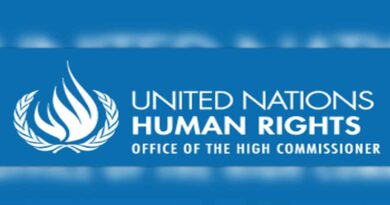Brazil: “Poison Package” Draft Bill on Pesticides Will Undermine Rights Protection Say UN Experts
(Special Correspondent)
GENEVA (22 June 2022) – UN experts* have urged the Brazilian Senate to reject a draft bill on pesticides, warning that its adoption will mark a monumental setback for human rights in the country.
“Weakening the current regulatory framework on pesticides would be a step backward when it comes to environmental standards in the country, a potentially retrogressive measure,” the experts said.
They were alarmed by provisions in the draft bill that would permit the use of carcinogenic pesticides and those that carry a higher risk of reproductive and hormonal problems, and malformations in babies.
“It is a myth that pesticides are necessary to feed the world, and that the adverse effects of pesticides on health and biodiversity are somehow a cost that modern society has to bear,” the experts said. “Pesticides present serious risks for human health and environment at a local and global scale.”
UN experts previously expressed concerns and stated their position against the draft bill, recommending instead that Brazil align its regulatory framework with standards and best practices of the Organisation for Economic Co-operation and Development (OECD). With Brazil now in accession discussions with the OECD, these recommendations acquire renewed urgency, the experts said.
They cautioned that approval of the draft bill would aggravate serious human rights issues in Brazil related to pesticides, highlighted in the 2019 report by the Special Rapporteur on toxics and human rights. The experts urged Brazil to adopt recommendations from that report.
“Instead of approving the draft bill, Brazil should be working to strengthen, not weaken, its regulatory framework on pesticides,” the experts said.
They called on the Brazilian government to pass and effectively enforce measures including bans on aerial spraying and prohibiting the use of pesticides near dwellings, schools, water resources, and other protected areas.
“Without further measures to ensure businesses respect human rights and the environment, abuses will continue to proliferate if this draft bill is adopted,” they said.
The UN experts also urged Brazil to address deficiencies in the country’s current laws to prevent exposure to pesticides for persons of all ages and backgrounds, including indigenous peoples, Afro-Brazilians, quilombola communities, women and girls, peasants, and other marginalized groups or persons at risk.
“The best way to prevent exposure is to eliminate the hazard posed by highly hazardous pesticides,” the experts said.
The experts are in dialogue with the Government of Brazil on this issue.




